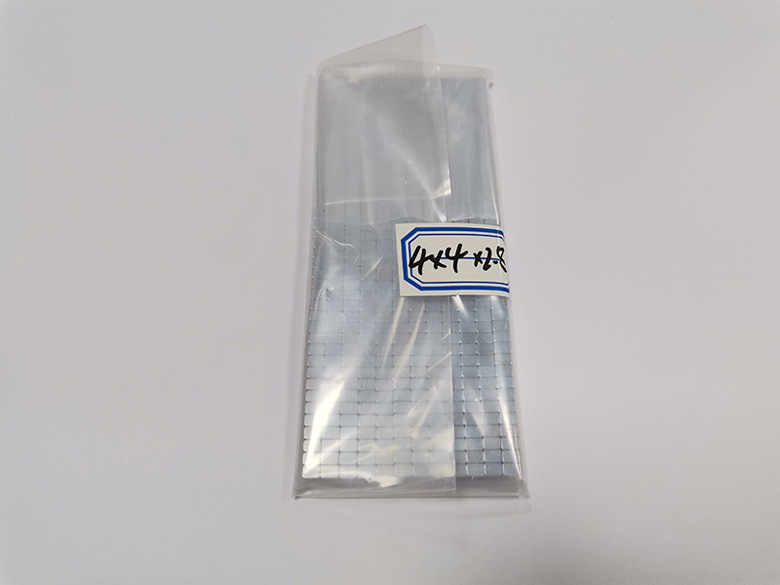Magnets play an important role in modern technology applications and industrial production and manufacturing, from electronic equipment to automobile manufacturing, the strength of the magnet directly affects the performance and efficiency of the product. How do you choose the right magnet strength? This article will provide you with a practical guide to help you determine the magnet strength you need, along with some examples.
The first thing is to determine the needs, for example, large or heavy objects usually need stronger magnets to provide sufficient adsorption or propulsion. Then there is what kind of environment the magnet is used in, whether it needs to be corrosion resistant or high temperature resistant properties. Application wise, what products are they used in, examples electronics, electrical appliances, motors, toys, office, etc. Magnet strength requirements will vary from application to application.
The picture shows a small square neodymium magnet 4x4x2.8mm.

Here are some common product requirements for magnet strength;
Magnetic doorstop, 1000-2000 gauss, some choose cheap ferrite, some choose neodymium iron boron.
Anti-theft tag unlocker: 4000-5000 gauss.
Magnetic lock: 5000-6000 gauss.
Magnets on refrigerator stickers, magnetic notepads, these products usually only need a few hundred gauss magnetic field strength.
Refrigerator door seals are usually rubberized soft magnets, and a few hundred gauss will suffice.
Vibrating motors on electric toothbrushes have a strength range of about 3000-5000 gauss.
Magnets in children's toys are usually chosen from lower strength magnets, such as ferrite magnets, where the magnetic field strength may be in the range of a few hundred gauss.
MRI (Magnetic Resonance Imaging) machines, which utilize superconducting magnets to generate extremely strong, uniform magnetic fields, often in the tens of thousands of gauss (Tesla) level, for high-resolution diagnostic imaging, e.g., a magnetic field strength of 1.5 Tesla.
Magnets used for teaching demonstrations or simple experiments may require variable ranges of magnetic field strengths, from a few hundred to a few thousand gauss.
The types of magnets used in loudspeakers are primarily neodymium-iron-boron and ferrite, with gauss strengths typically in the range of 1000-3500 gauss.
In most Hall effect sensors, magnets are usually required to have lower Gauss values, such as 1000 Gauss or less, with certain requirements for uniform distribution of the magnetic field.
Magnets are also in high demand in magnetic connectors, which are usually made of high-grade N52 or N54, and the apparent magnetic strength usually needs to be 3000 gauss or more.
Used in salvage above the magnet, usually neodymium countersunk hole magnets + stainless steel combination of ways, gauss value of 3000 or more, do not look at the gauss is small, the tension can reach dozens of hundreds of kilograms.
The above are some examples of product specific requirements and applications for magnet gauss strength. Different applications have different requirements for magnet strength, and choosing the right magnet strength can ensure the best performance and efficiency of the product.
Editors recommend you check it out;
 China Neodymium And Ferrite Magnets Manufacturer & Supplier
China Neodymium And Ferrite Magnets Manufacturer & Supplier 


